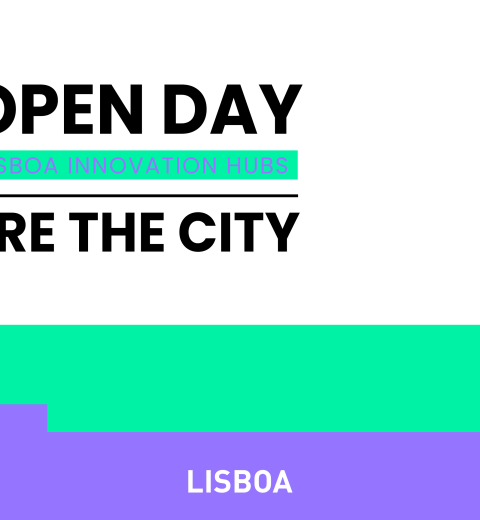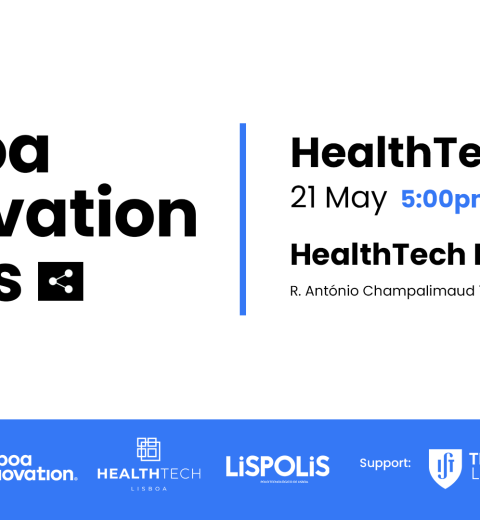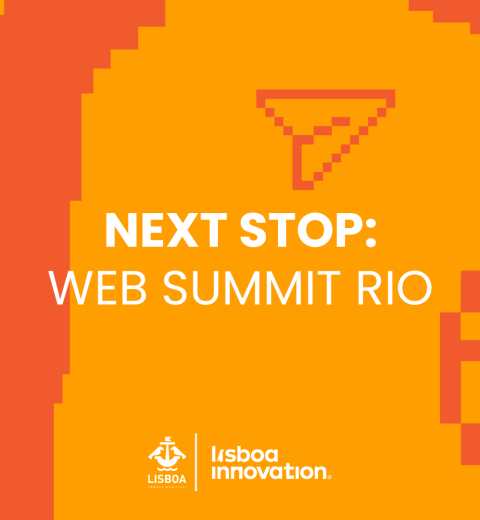The establishment of temporal goals in the transition process to achieve decarbonization across various economic sectors is the carrot that has been spurring companies—both large and small—and serving as inspiration for those working on innovative sustainability technology solutions.
The first Lisboa Innovation Tour of 2025 took place on January 16 at Greenhub by Unicorn Factory Lisboa, showcasing examples of startups that have already begun to take confident steps in this journey and wish to reap their benefits.
The hub, powered by Unicorn Factory Lisboa in partnership with Critical Software, Grupo Brisa, and Mota-Engil, dedicated to the sustainability vertical and managed by Sofia Dias Lopes, is located in the Entrecampos area and hosts 16 technology startups (scale-ups) in the sustainability field, employing 110 people.
Increasingly, problems associated with carbon emissions are a cross-cutting concern for society. The entrepreneurial community is not oblivious to the topic and it is precisely from here that innovative technological solutions have been emerging to reduce or eliminate these problems.
Ángela Oropesa Román, COO at Emissium, and participant in this discussion dedicated to the challenges and opportunities facing the entrepreneurial community, explained to an interested audience that her company works with international clients, dedicating itself to the collection and processing of real-time data on the carbon footprint associated with electricity consumption in production processes. “It is an essential tool for detecting dysfunctions and is crucial for supporting management decision-making, correcting or anticipating measures.”
ZeroPact, a startup founded by João Pedro Morgado, uses Artificial Intelligence to calculate the carbon footprint that the production of a particular item entails. For example, “it is possible, through our solution, to track the carbon emissions involved in manufacturing a clothing item from any fast-fashion chain. From the choice of raw material to the moment a sweater arrives at the consumer’s home,” adds João Pedro Morgado.
“What ways do we then have to reliably know, us consumers, the carbon footprint associated with the products we purchase?” questioned Sofia Dias Lopes, challenging the participants in the debate. If currently, the labels on food products already obligatorily contain nutritional information important for us to better decide what to choose, it is natural that transparency about the carbon footprint associated with the production of other items will assume equal importance.
“The existence of a seal, a label, a digital passport that contains such information (it is not yet mandatory) is ideal. The consumer must be demanding and make conscious and sustainable purchases,” added the representative from ZeroPact. But, all this is not enough, “we must be alert to greenwashing by some less scrupulous companies,” emphasized Luís Rebelo from Cleantech for Iberia.
Scale is an important factor in this sector. Therefore, Cleantech for Iberia brings together innovators, investors, and clean technology policy makers within the Iberian ecosystem, granting it potential as a clean energy center of the European Union and a prominent location for the clean industry,” explained the Policy Manager of this community.
In Portugal, there are already many companies concerned with decarbonization. Drawing from his experience, Luís Rebelo provided examples of some that are already part of Cleantech for Iberia. Rega Energy, for example, works with factories in Marinha Grande in the glass sector and operates biometane and green hydrogen production units that can complement the part that electrification alone cannot, addressing the remaining energy needs. This allows for deep decarbonization in the sector, with the use of renewable gases on a large scale.
If the business sector is showing signs of wanting to improve its pre-existing practices, there are startups at the forefront of using completely disruptive and innovative methods in the production process. During this tour, we got to know three innovative projects in the sustainability area, developed by startups supported by Instituto Superior Técnico: Terra Prima and VirtuaCrop, both working in agriculture, and TFC – Técnico Fuel Cell, which is developing a unique prototype in Portugal of a sustainable urban car, powered by hydrogen, aiming for efficiency. Green is therefore maturing, and the fruits will not be long in coming.






